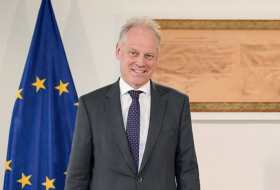The study is the first attempt to put a realistic “price tag” on leaving the EU with some EU officials even warning that the cost could be substantially higher.
Former UK Trade Minister Lord Livingston said the cost spread over a year equates to £350 million a week.
In the run-up to the June referendum, Vote Leave repeatedly claimed £350 million was sent to the EU each week. It also claimed this money could be used to increase NHS funding if Brexit was successful.
However, just hours after the Brexit announcement, Ukip leader Nigel Farage said: “I can’t and I would never have made that claim – it was one of the mistakes that the Leave campaign made.”
London School of Economics Brexit expert, Professor Iain Begg, told The Independent: “The main implication is that, at least in the short term - stretching beyond not just a likely Brexit date (spring 2019) but the next UK general election - the UK will not achieve the reduction in its contribution to the EU budget that was promised in the referendum.
“The presumed windfall for the NHS will, therefore, become a disappointment. There might be a one-off settlement as part of a Brexit deal, but as the estimates in the FT article show it would be a huge bill.”
The disclosure is likely to cause more turmoil for foreign markets as the pound slumped to a 168-year low on Wednesday.
The pound dropped by almost one per cent against the dollar during a course of exchanges in the Commons before rallying, ending up around 0.73 per cent against the dollar at $1.22.
Economist Thomas Sampson told The Independent: “It’s important to remember that the exit bill would be a one-off payment and in the longer run it is likely to be dwarfed by the broader economic costs resulting from reduced integration with EU markets, particularly if the government pursues a hard Brexit.”
A Government spokesperson declined to comment on the claims.
"As the Prime Minister has said, we will invoke Article 50 no later than the end of March next year. We are not going to provide a running commentary on leaving the EU,” the spokesperson said.
More about:
















































